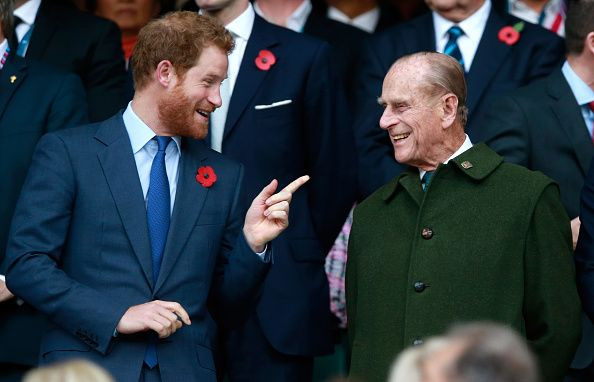Prince Philip Uses This Trick To Avoid Getting Stuck In Lengthy Conversations

Prince Philip uses a particular cryptic sign to end a conversation.
According to royal historian Hugo Vickers, the Duke of Edinburgh has a particular hand signal that he uses to move on from a chitchat. In an interview with People in 2011, Vickers explained how the 97-year-old senior royal would do a sweeping motion with his hands to avoid getting stuck in lengthy conversations.
Prince Philip would shake someone’s hand and ask a question. As he does so, his hands swing from left to right and by the time the guest speaks to answer the question, the duke has already moved on in the line-up, leaving the person behind.
Queen Elizabeth II has her own signals to send the same message. The monarch reportedly moves her handbag from one hand to the other to tell her aides that she wants to move along from a guest. Another cryptic sign that Her Majesty uses for the same purpose is spinning her ring.
Vickers also noted that the Queen has a secret buzzer in her audience room at Buckingham Palace. When Her Majesty wanted her guest out, she would use it to alarm her aides and have them usher the guest away.
In related news, Prince Charles reportedly went through “absolute hell” after Prince Philip sent him to study in Gordonstoun in Scotland. The Duke of Edinburgh wanted to toughen up “sensitive” Prince Charles as he would be taking over the throne in due time. However, the Prince of Wales didn’t appreciate it because he was subjected to intense suffering during his stay in the said school.
One time, the heir penned a letter to Prince Philip and Queen Elizabeth II saying that “it’s absolute hell here” before adding that he wished he could go home.
Prince Philip and Queen Mother argued about sending Prince Charles to Gordonstoun because the latter wanted the future king to attend Eton. However, the duke’s decision prevailed as he is Prince Charles’ father.
Prince Philip had a traumatic childhood and he encountered a number of heartbreaking tragedies. These could possibly be among the reasons why he brought up his eldest son the way he did.
© Copyright IBTimes 2025. All rights reserved.






















